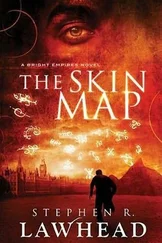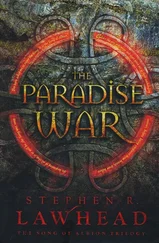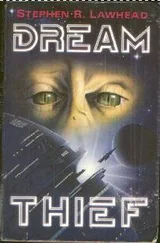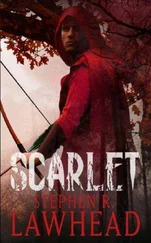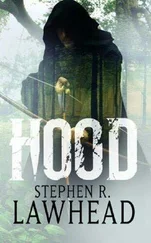Stephen Lawhead - Taliesin
Здесь есть возможность читать онлайн «Stephen Lawhead - Taliesin» весь текст электронной книги совершенно бесплатно (целиком полную версию без сокращений). В некоторых случаях можно слушать аудио, скачать через торрент в формате fb2 и присутствует краткое содержание. Жанр: Фэнтези, на английском языке. Описание произведения, (предисловие) а так же отзывы посетителей доступны на портале библиотеки ЛибКат.
- Название:Taliesin
- Автор:
- Жанр:
- Год:неизвестен
- ISBN:нет данных
- Рейтинг книги:4 / 5. Голосов: 1
-
Избранное:Добавить в избранное
- Отзывы:
-
Ваша оценка:
- 80
- 1
- 2
- 3
- 4
- 5
Taliesin: краткое содержание, описание и аннотация
Предлагаем к чтению аннотацию, описание, краткое содержание или предисловие (зависит от того, что написал сам автор книги «Taliesin»). Если вы не нашли необходимую информацию о книге — напишите в комментариях, мы постараемся отыскать её.
Taliesin — читать онлайн бесплатно полную книгу (весь текст) целиком
Ниже представлен текст книги, разбитый по страницам. Система сохранения места последней прочитанной страницы, позволяет с удобством читать онлайн бесплатно книгу «Taliesin», без необходимости каждый раз заново искать на чём Вы остановились. Поставьте закладку, и сможете в любой момент перейти на страницу, на которой закончили чтение.
Интервал:
Закладка:
At this, Avallach threw his head back and laughed. The sound of his voice reverberated throughout the hall and echoed among the timber beams. He rose slowly from his litter and, holding to one of the canopy posts, lifted his cup. “Drink, my friends!” he said. “Your presence has cheered me greatly.”
Charis watched for a while and then, while everyone else was busy drinking and talking, slipped from the room, motioning Dafyd to follow her. He caught up with her in the corridor beyond. “You wish a word, Princess?”
“Who are they?” she asked, pulling the priest further along the corridor.
“They are who they say they are,” he answered. “A king and his people. I gather they have been driven from their homeland. Gwynedd is Cymric land in the north.”
“Driven? How so?”
“By war, Princess Charis. By the fighting that rages continually up there. Their lands were overrun by barbarian warriors. They escaped only with their lives.” The priest paused, and added, “And if what I hear is true, we will soon enough feel the heat of war in the south as well.”
“Thank you, Dafyd,” said Charis, looking back through the open doorway to the hall. “Thank you…” She walked away slowly, already lost in thought.
That night Avallach hosted the Cymry at his table, with Lile by his side. Charis declined to attend the meal and ate in her chambers. She sat alone in her room and listened to the sounds of the banquet proceeding in the greater hall. At one point the noise died away completely. She strained after any errant sound but heard nothing. What could it mean?
Prompted by curiosity, she moved to the door of her chamber, opened it and leaned out into the corridor, listening… Silence.
Finally she could bear it no longer and crept down to the hall to listen at the door. It was open and as she approached, moving quietly among the shadows, she heard the clear, ringing notes of a harp and a moment later the strong, melodic voice of a singer. The Cymry-some sitting on benches, others cross-legged on the floor-were gathered around one of their own, who stood illumined by the flickering torchlight: the golden-haired man.
Although many of the words were unfamiliar, Charis gathered that he sang about a beautiful valley and all the trees and flowers and animals there. It was a simple melody, strongly evocative, and she was drawn by it. She crossed the threshold into the hall, half-hidden by one of the columns.
The young man stood erect, tall and lean, his head up, eyes closed, the harp nestled against his shoulder, his hands moving deftly over the harpstrings, summoning each silver note from the heart of the harp. His mouth formed the words, but the music came from beyond him; he was merely a conduit through which it might pass into the world of men, pouring up and up like a fountain from the hidden depths of his soul to spread in glimmering rings around him. Charis listened, hardly daring to breathe lest she disturb the singular beauty of the moment.
It was a sad song, a heartbreaking song, wild and proud, a song about a lost valley, a lost land, about all the losses a human heart might hold dear and remember. As the song spun out, Charis gave herself wholly to its spell, letting the ache of her own loss wash over her in a sweet, dark flood. As the last, trembling notes of the song faded away, she saw glistening drops on the young man’s cheeks.
We are alike, you and I, she thought, homeless wayfarers in a world that is not our own.
The harpstrings sounded again and the young man began another song. Charis did not wait to hear it but pushed herself away from the column and hurried from the hall as the first notes from that honey-smooth voice flowed into the air.
CHAPTER FOUR
They slept that night in the hall of the fisher king. The fire burned brightly in the great pit and they pulled their cloaks over themselves and slept, heads filled with dreams of their lost home. Elphin and his warband had returned to find Caer Dyvi already besieged. The invaders who eluded Cuall at the river had struck south, marching all day along the coast to reach the caer at dusk. The hillfort’s defenses had kept the wary raiders at bay through the night. But with the coming of the dawn, the enemy saw that the fortress was virtually unguarded; only a token force made up of the older men and boys too young to take arms in the field had been left behind to defend it.
But if the invaders thought that made Caer Dyvi an easy conquest, they were soon persuaded differently. For the defenders succeeded in turning away outright assaults not once but three times, to the anger and frustration of the invaders.
When Elphin reached the caer, the barbarians had mounted a fourth assault and were on the brink of breaking through the gate. Women and children stood shoulder to shoulder. with the men on the ramparts, hurling stones and hot coals upon the heads of the raiders, their arrows long since spent. A moment or two later and the warband would have ridden home to a burning tomb.
As it was, they arrived to engage the enemy on the slopes leading up to the fort. The raiders, furious to find themselves suddenly confronted by several hundred well-trained horsemen, put up a fierce fight before scattering into the woods along the river. Cuall took half the force and rode after them. Elphin entered the settlement to find the destruction all but complete: gutted houses and outbuildings stood as charred ruins; the granary was a smoldering heap of black timber and burnt grain through which pigs trampled and snuffled; the great hall had lost its roof of thatch. The loss of life had likewise been heavy; many good people had died with Picti arrows in their throats or Irish spears in their chests.
The warband entered the caer to cheers of welcome and relief. The survivors, exhausted and bloody, still gripped their weapons with iron-fast determination. Rhonwyn, holding a spear and a Roman footman’s shield, stood at the forefront of the defenders as her husband rode in. Her face was smeared with soot and her hair gray with ash, but fire was in her eyes. “Greetings, lord,” she said, leaning her cheek against the spear. “As ever, your return is most welcome.”
“Are you hurt?” he asked, sliding down from the saddle.
“I am unharmed,” she replied, lifting a hand to drag her hair from her face. “Although your hall will require a new roof.”
Elphm gathered her in an embrace. They clung to one another for a long moment and then began walking through the ruins of the caer.
Caer Dyvi was attacked three more times in the next two days. The Cymry held them off, but each time their ranks were diminished; and no matter how many of the enemy were killed, more came the next time. It was clear that they had identified Caer Dyvi as a major stronghold and were determined to take it or destroy it, no matter how high the cost.
And the cost was high: the naked, blue-painted bodies of Picti, Scotti, and Attacotti lay virtually stacked outside the walls; the gate road was muddy from the blood of the fallen; spears stood like a sapling forest, growing up amidst thickets of arrows on the slopes of the hill. The air was thick and foul with the buzzing of flies and the stink of death. The skies over the caer darkened as ravens and carrion crows flocked to their grisly feast.
And still the invaders would not withdraw.
In the end Elphin had no choice. It was either abandon the caer and save as many of his people as he could, or stay and watch them slaughtered one by one. It was not an easy choice: most of the kinsmen would rather have died with an arrow through the skull than forsake their land and homes.
Hafgan and Taliesin, who had labored long, upholding the warriors with praise and incantations, had come to Elphin with the sorry truth. “We cannot win against them, Father,” Taliesm said gently. “There are too many. We cannot kill them all.”
Читать дальшеИнтервал:
Закладка:
Похожие книги на «Taliesin»
Представляем Вашему вниманию похожие книги на «Taliesin» списком для выбора. Мы отобрали схожую по названию и смыслу литературу в надежде предоставить читателям больше вариантов отыскать новые, интересные, ещё непрочитанные произведения.
Обсуждение, отзывы о книге «Taliesin» и просто собственные мнения читателей. Оставьте ваши комментарии, напишите, что Вы думаете о произведении, его смысле или главных героях. Укажите что конкретно понравилось, а что нет, и почему Вы так считаете.


